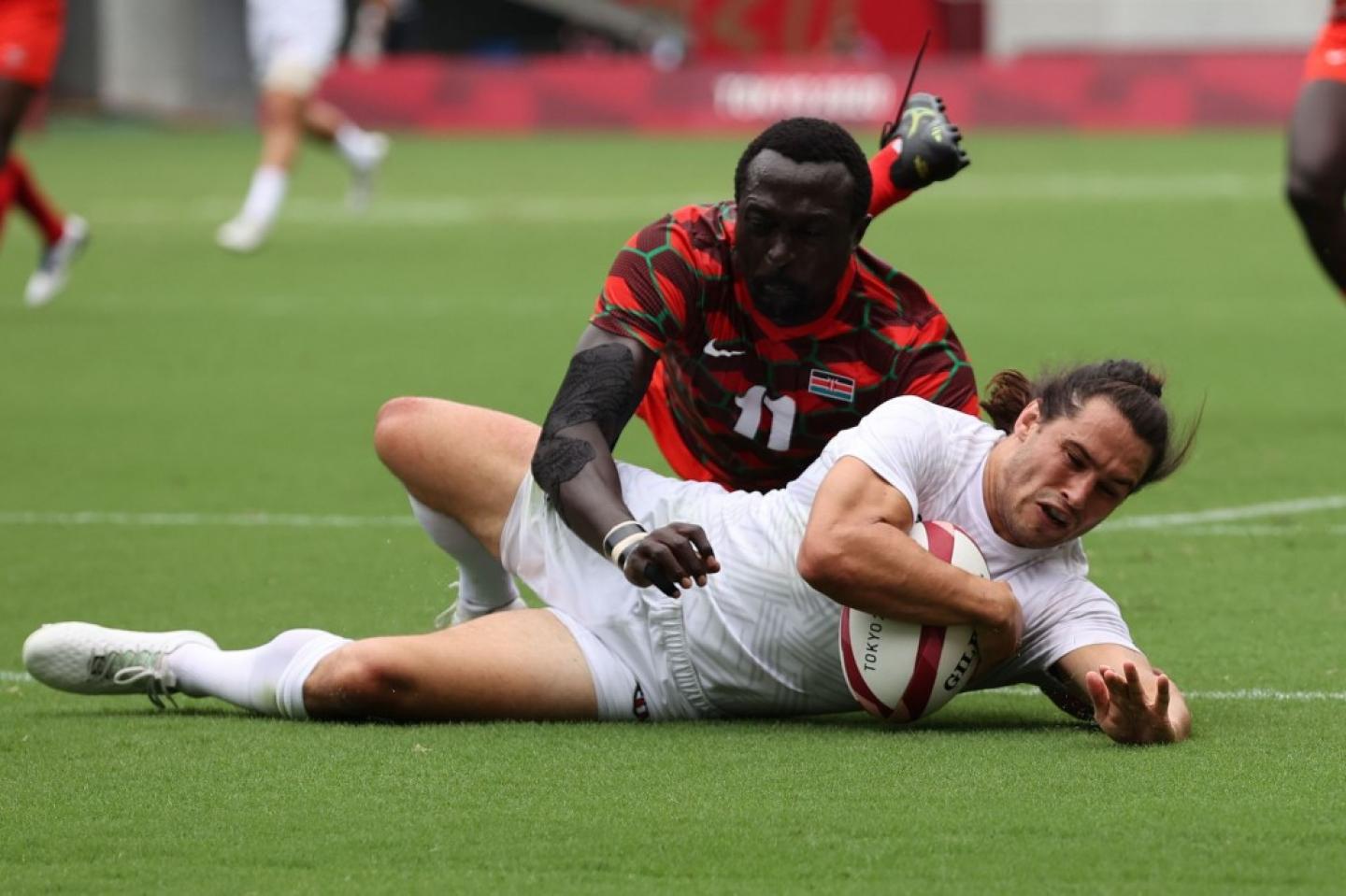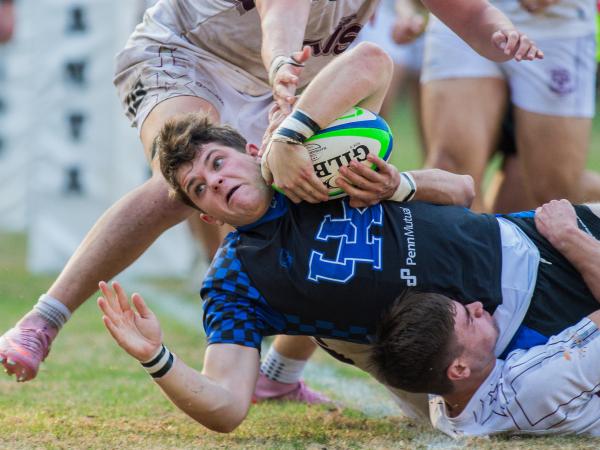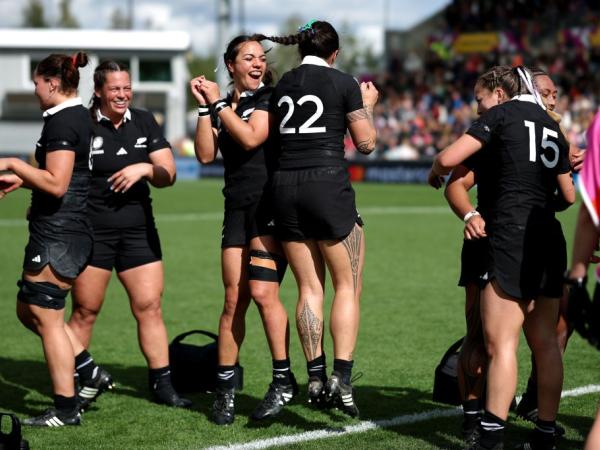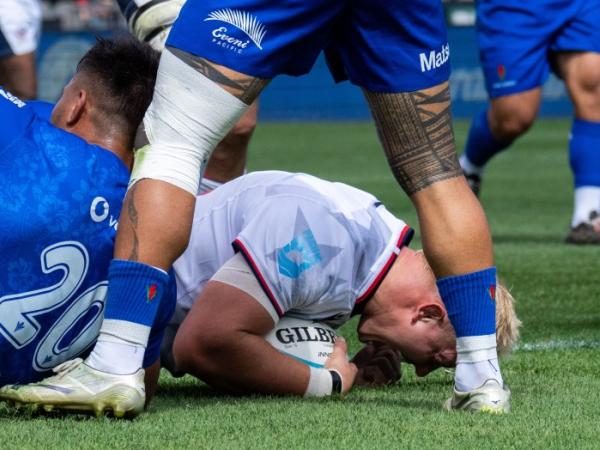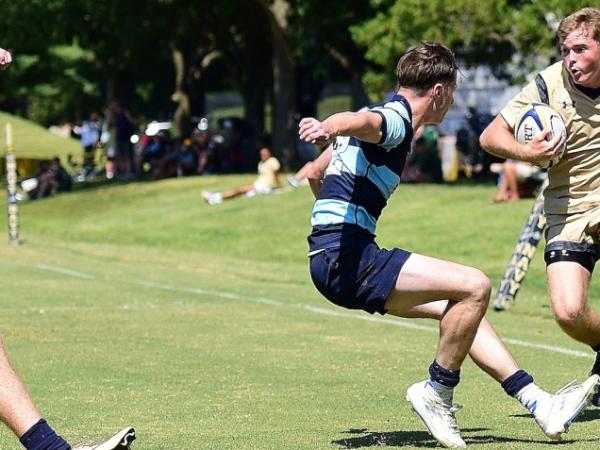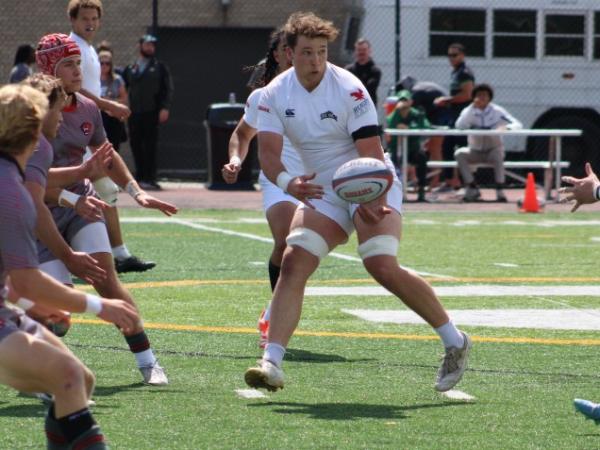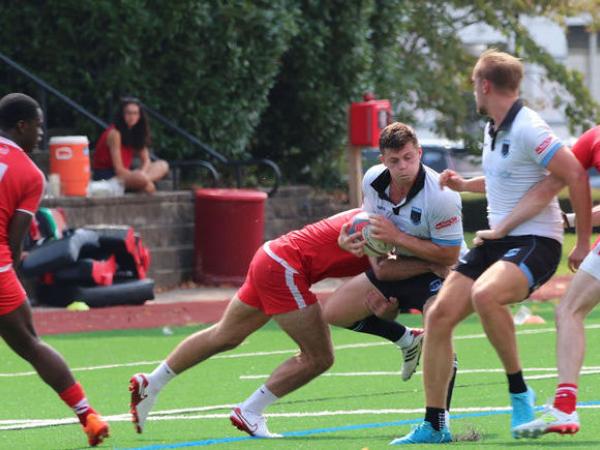Looking at the Tokyo 2020 performance from the USA Men, I am not especially surprised or shocked.
From the end of the 2018-19 season, the Eagles had struggled with inconsistency, and so to see them continue to deal with that was no great shock.
Analysis by Alex Goff
But, having said that, we all knew the USA had the talent and the potential to medal in the Olympics. Of course, so did a bunch of other teams so there's that issue that's easy to forget—the other guy is working really hard to stop you.
But through 2017-2019 I did see this USA men's 7s team do some pretty special things. I saw them finally find a way to give two gifted and fast finishers the space in which to run and score. I saw them dominate—completely dominate—the restarts, winning more than twice as many of their own restarts as anyone else. I saw them find ways to shake up their offensive approach, becoming a team that could beat you by going around, over, or through.
Defensively the Eagles had some of the top tacklers on the circuit.
We didn't see a whole lot of that in Tokyo. Some of it, but not all.
Lack of Variety
The boot is a useful tool and the USA has on occasion used the kick to get the ball through and send players like Martin Iosefo (for the short ones) or Carlin Isles (for the long ones) to chase them down. It's a brilliant move, when used sparingly, but completely useless if you don't use it at all.
Running up the middle and engaging defenders is a nice idea, but not in isolation. Doing so and charging ahead further and further works when you've got support runners on your hip. You pop a pass, and then maybe next time the next support guy clears out, and then you spin it wide. Basic stuff. But in Tokyo we saw that first part, the charging ahead. We didn't see the pop passes to anyone in support, and we saw a lot of late clearouts. The result was holding-on penalties against the Americans.
Personnel
I am making a policy of trying not to single out players, in part because it's unfair to say this one guy was responsible for the USA not getting a medal. They know the mistakes they made. But I will say that the USA missed Ben Pinkelman. As much as his replacements tried, Pinkelman has better field vision, better lateral movement, is better in the breakdown, and more powerful in contact. Those little differences matter.
I think a couple of players weren't quite ready for the time expected of them, and in retrospect someone else should have carried the weight.
I think that the time off from COVID and the scattered competition schedule didn't help unity on the field. They might have been feeling the unity, but we didn't see it.
Bad Déja Vu
When Isles and then Baker came onto the scene, the USA players had a horrible habit of playing as if to say "you think all we have to do is pass it to the fast guy and he scores, but it's not that simple. I'll show you. I'll fake to the fact guy and go alone. See?"
Even worse, we'd see players run an outside angle until Baker or Isles had two meters of space, and then pass of to them as if you say "see? He's not so hot." It was infuriating, and when Mike Friday showed up he got that changed. We saw way, way too much of that in Tokyo. I don't get it. Run a straight line, and pass quickly and smoothly out wide, at least a couple of times, to see if it works.
Because when they did do that, good things happened. they've happened for years.
(I'd also point to our comments about the USA women's team about being risk averse. You've got to take a few risks, make that extra pass, risk making a mistake. Timidity in decision-making, which seemed appear at times in Tokyo, is a killer.)
Having Said All That
The USA could have been playing for a medal if they hadn't collapsed in the second half against Great Britain. They were superbly poised to get into that medal group and then who knows? They were very, very close to being there even with all the infuriating stuff.
So now what? The future of this USA program is difficult to see because it's expected that several of these players will retire. We'll see the emergence of the Premier Rugby Sevens, and I think some of the players who've signed on for that will not play for the USA anymore. With that, we'll see, overall, a younger and different USA program, and that's a new and interesting challenge for the coaching staff.
But whatever team that is, I hope they attack the task of representing the USA with the idea of not playing with fear, but playing with nothing to lose.





